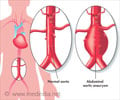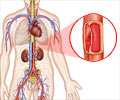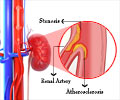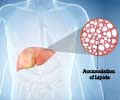Protective mechanism against atherosclerosis has been discovered by a research team who finds that the receptor BAFF has anti-inflammatory properties which have a positive effect on plaque size and atherosclerosis risk.
- A protective mechanism against atherosclerosis has been discovered.
- The molecule B cell activating factor (BAFF) plays an important role in the development of atherosclerosis.
- Deletion or blockade of the BAFF receptors reduces the development of atherosclerosis.
"We were able to show that B2 lymphocytes were efficiently depleted upon anti-BAFF antibody treatment", senior author of the study Christoph Binder, CeMM Principal Investigator and Professor for Atherosclerosis Research at the Medical University of Vienna, describes the results of the study. "Surprisingly, the plaque size increased, indicating a hitherto unknown role of the BAFF molecule in atherosclerosis. However, in further experiments, we were able to explain these findings."
The researchers found BAFF to have anti-inflammatory properties, which has a positive effect on plaque size and atherosclerosis risk. The newly discovered mechanism is triggered by an alternative BAFF receptor - Transmembrane activator and CAML interactor (TACI) on the surface of macrophages, another type of immune cells. It was shown that these cells induce an anti-inflammatory process. This finding may provide important implications for atherosclerosis research and prevention: For example, mutations in the gene for TACI may confer an increased cardiovascular risk.
References:
- BAFF Neutralization Aggravates Atherosclerosis - ( http://circ.ahajournals.org/content/early/2018/05/31/CIRCULATIONAHA.117.032790)
Source-Eurekalert













